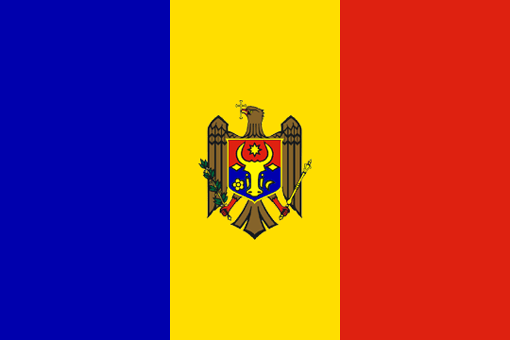Login form
Customs of Moldova
Marriage and Family
 Couples marry at a
Couples marry at a
Moldovans often marry young, partly out of desire to be treated as adults. In urban areas, families usually have only one or two children, while families in rural areas may have three or more. Children remain close to their parents throughout life. Young couples in urban areas often have difficulty finding housing, so they usually move in with the bride’s parents. As a result it is common for two or three generations of a family to live in a small one- or two-bedroom apartment. In rural areas, extended families share a larger home, but they often lack modern conveniences such as running water. Typically both spouses work outside of the home, but women are finding it harder to find jobs because men are often given priority when jobs are scarce. Women are responsible for child care and the household. Men assume the role of head of the family.
Eating
Romanian, Russian, Ukrainian, and Bulgarian cuisines are all part of the Moldovan diet. The most common soup eaten at lunch is Ukrainian borscht (made of tomato juice and beets). Meat, bread, potatoes, and vegetables are staples for the main meal. Bread is served with most meals; wine is served with lunch and dinner. Traditional Moldovan dishes include mamaliga (cornmeal mush) with brinza (sheep cheese) or mititei (grilled sausage rolls), fried onions with sour cream, and placinte (flaky stuffed pastry). Garlic, onions, and herbs are used in cooking many dishes. Popular fruits include apples, grapes, plums, cherries, strawberries, and watermelon. Typical vegetables are eggplant, peppers, cabbage, potatoes, and tomatoes. Because fresh produce can be expensive for urban dwellers, many families have gardens on the outskirts of town. Meats are popular; chicken and pork are the least expensive.
The urban breakfast is usually light, consisting of open sandwiches with sausage or cheese, coffee or tea, and fruit preserves. For people in rural areas—who often eat more substantial meals of kasha (hot porridge), potatoes, bread, and sheep cheese—breakfast may be the main meal of the day, except on weekends, when it is lunch. In urban areas lunch is generally the main meal, consisting of soup, salad, and a main course. For dinner, people tend to eat only one course. Children at elementary school usually have an afternoon “tea” (juice and a sweet roll). Coffee, tea, juice, milk, wine, and stewed fruit are the most common beverages in
Food is almost always prepared by a woman; it is considered embarrassing for a man to admit he cooks. Serving dishes, from which each person takes his or her portion, are placed in the middle of the table. Hands and forearms are kept above the table throughout the meal. When guests are present, the hosts offer additional helpings, which it is polite to decline perhaps two or three times before accepting. Leaving food on the plate may be considered a sign that a guest has not enjoyed the meal.
Socializing
Moldovans in urban areas generally shake hands when they greet each other, although a man waits for a woman to extend her hand first. In mixed company, a man shakes a woman’s hand before another man’s. Good friends and relatives often also hug. Moldovan men in rural areas, and increasingly some in urban areas, greet a woman by kissing her hand. Common greetings include the Romanian Buna Ziua (“Good day”) or Noroc (“Hi”), and the Russian Privet (“Hi”) or Zdravstrvuite (“Hello”).
When addressing others, young people generally use first names. When adults meet, they introduce themselves by first name and middle name (for example, Ion Petru), often preceded by the family name (for example, Chorbu Ion Petru). Titles (such as “Mr.,” “Mrs.,” etc.) are used with the family name in formal situations. In urban areas people rarely smile at or greet strangers they pass on the street, but in rural areas this is more common.
Moldovans greatly enjoy visiting friends and relations. On special occasions, guests are treated to large meals. Otherwise, people sit in the kitchen or living room and they may chat for hours. Hosts generally provide guests with coffee, tea, wine, or cognac. Vodka is popular among ethnic Russians. Close friends and relations feel comfortable visiting without prior arrangement, but among those with telephones, a call in advance is usually appreciated. Most socializing takes place in the home. Guests often bring small gifts, and hosts, especially in rural areas, usually reciprocate with a small gift such as a cake “for the next morning” or wine. Foreign visitors are considered honored guests and are treated to the family’s best.
Recreation
In their leisure time, Moldovans visit friends, go to movies, or read. Soccer, badminton, basketball, volleyball, swimming, and ice skating are popular sports among teenagers and young adults. A small number of urban adults jog or exercise. Private health clubs are opening in some areas, but they are expensive. Public facilities are available, but most are in need of repair. Moldovans enjoy music and art, and they particularly enjoy attending concerts. A number of ensembles perform folk music, which is especially popular at national festivals.
Holidays and Celebrations
National holidays in
Source: Encarta Interactive World Atlas

